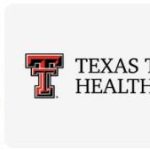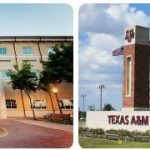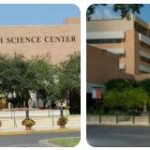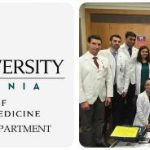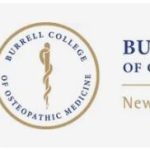Des Moines University Osteopathic Medical Center (DMU) was founded in 1898 by Dr. Still, the father of osteopathic medicine. Initially known as the American School of Osteopathy, DMU was the first osteopathic medical school in the world and is now one of only two osteopathic medical schools in Iowa. Over the years, DMU has continued to expand its programs and services to meet the changing needs of its students and patients. In 2003, DMU began a graduate program in physician assistant studies and became accredited by the Commission on Accreditation of Allied Health Education Programs (CAAHEP). The following year, DMU opened a new medical clinic that serves both students and faculty members. In 2009, DMU opened its first campus housing facility for medical students and residents. The university continues to expand its facilities to meet the needs of its students, faculty, and patients. In recent years, DMU has added an expanded physical therapy program, a new research center dedicated to osteopathic medicine research, and a new health sciences library with access to thousands of scholarly journals. Additionally, DMU has established partnerships with other universities around Iowa that allow for increased collaboration between institutions and increased access to resources for students seeking advanced degrees or specialized training in healthcare fields.
Des Moines University, abbreviated as DMU, is one of the top-ranked U.S. medical schools located in Des Moines, IA. Keep reading to see admissions application information including average GRE scores, admissions selection factors and dual degree programs of Des Moines University.
3200 Grand Avenue
Des Moines, IA 50312
(515) 271-1450
Admissions E-mail: doadmit@dmu.edu
Web site: http://www.dmu.edu
Electronic application: N/A
Latest profile:
Fall 2008 Admissions Information
AMCAS application accepted? No
Earliest application date: 05/01
Application deadline: 02/01
Oldest MCAT considered: 2004
Application fee: N/A
Director of admissions: Jamie Rehmann
Does this school ask for a secondary application as part of the admissions process? Yes
This school requires undergraduate work in these subjects in order to apply: biology/zoology, English, organic chemistry, inorganic (general) chemistry, physics
Is a personal interview required for admission? Yes
Are interviews conducted at the medical school? Yes
Acceptance notice to regular application for the 2007-2008 first-year class:
-Earliest date: October 1
-Latest date: May 1
Applicant’s response to acceptance offer for the 2007-2008 first-year class:
-Maximum time in weeks: 4 weeks
-Does the school consider requests for deferred entrance? Yes
-Deposit to hold place in class: $1,000
-Deposit due: N/A
-Deposit refundable prior to: N/A
-Starting month for the class of 2007-2008: August
Early Decision Plan application period for the 2007-2008 first-year class:
-Does the school have an Early Decision Plan (EDP)? No
-EDP application period begins: N/A
-EDP application period ends: N/A
-EDP applicants notified by: N/A
Fall 2005 Admissions Statistics
Des Moines University Osteopathic Medical Center (DMU-OMC) is a prestigious medical school located in Des Moines, Iowa. Established in 1898, DMU-OMC is one of the oldest and largest osteopathic medical schools in the United States. The school has a long history of producing highly sought after physicians who are well respected by their peers and patients alike.
The admissions statistics for DMU-OMC are impressive. For the 2019-2020 academic year, the school received over 2,600 applications from aspiring doctors across the nation, with an acceptance rate of just 4%. This means that only about 104 applicants were accepted out of all those who applied. The average GPA for accepted applicants was 3.72 and the average MCAT score was 503. In addition to these impressive numbers, students accepted into DMU-OMC also have an average of over 500 hours of volunteer or extracurricular activities and a strong commitment to service within their communities. These statistics demonstrate that DMU-OMC is committed to accepting only those applicants who have demonstrated strong academic abilities as well as dedication to their communities and commitment to service.
| Applied | Interviewed | Accepted | Enrolled | |
| Total: | 2,675 | 624 | 410 | 215 |
| In-state: | 161 | 77 | 55 | 43 |
| Out-of-state: | 2,514 | 547 | 355 | 172 |
| Women: | 1,231 | 277 | 200 | 93 |
| Minorities: | 792 | 131 | 68 | 19 |
| International: | 37 | 10 | 8 | 5 |
Acceptance rate: 15.3%
GPA
Average undergraduate GPA: 3.65
MCAT
Overall score (composite): 8.6
Verbal reasoning: 8.3
Physical sciences: 8.5
Biological: 9.1
Writing: O
Undergraduate Majors
Biological sciences (biology, microbiology, zoology, etc.): 55%
Physical sciences (biochemistry, chemistry, engineering, etc.): 15%
Non-sciences (sociology, economics, English, etc.): 12%
Other health professions (nursing, pharmacy, etc.): 5%
Mixed disciplines and other: 13%
|
Combined Degree Programs
Combined degree programs offered: D.O./M.P.H., D.O./M.H.A.
Does the school have a combined college/D.O. program? No
Number of years to complete combined college/D.O. program: N/A
Web site for combined college/D.O. program: N/A
Selection Factors
Details on the policies, preferences, criteria, factors and procedures used in the M.D. admission process:
(Data appear as originally submitted by this school)
The admission policies define acceptable premedical education and designate admission procedures. The practice of osteopathic medicine requires good communication skills, an understanding of individuals within their social environment, logical and quantitative thinking and a solid background in the sciences. Students are encouraged to complete a diversified undergraduate program.


